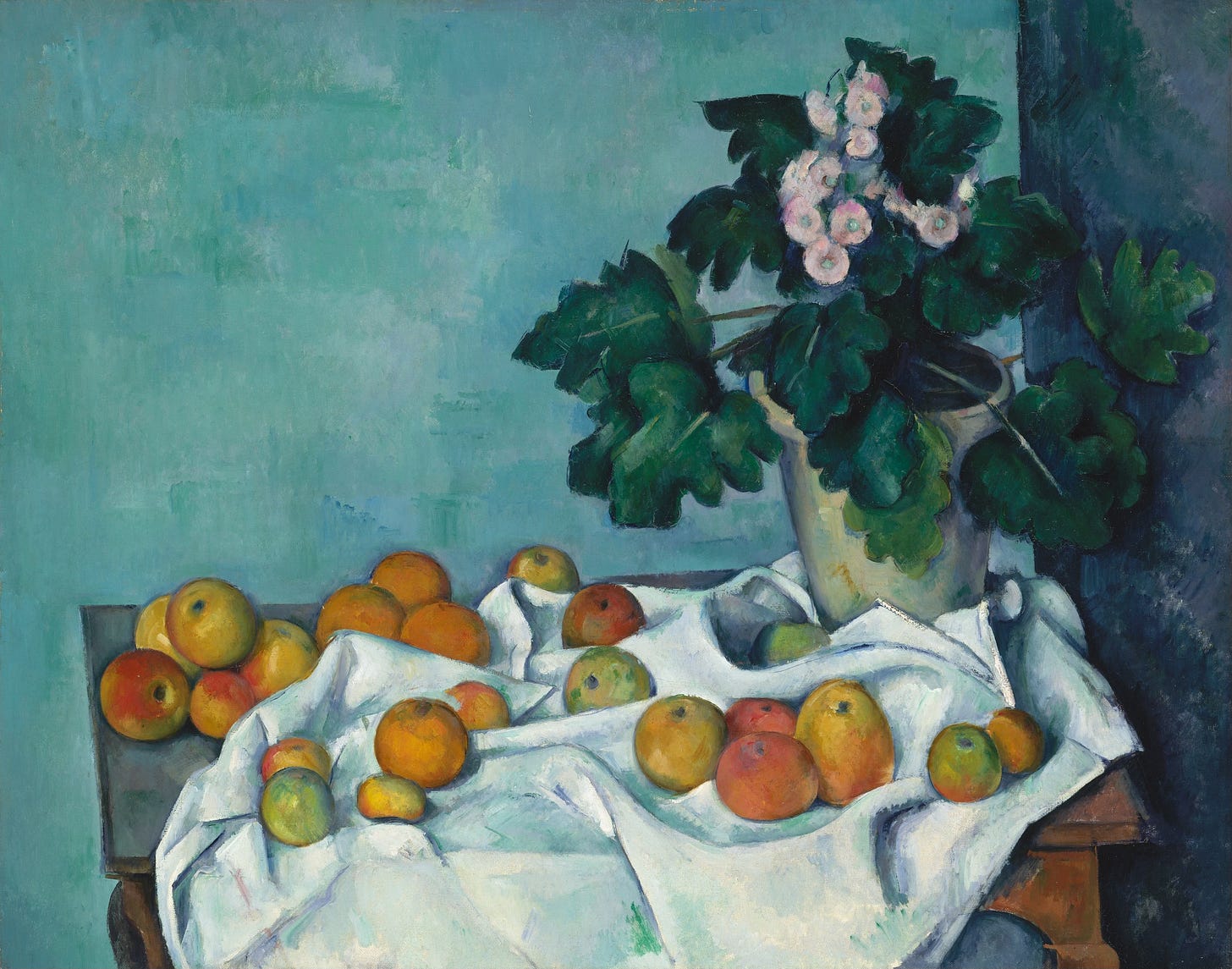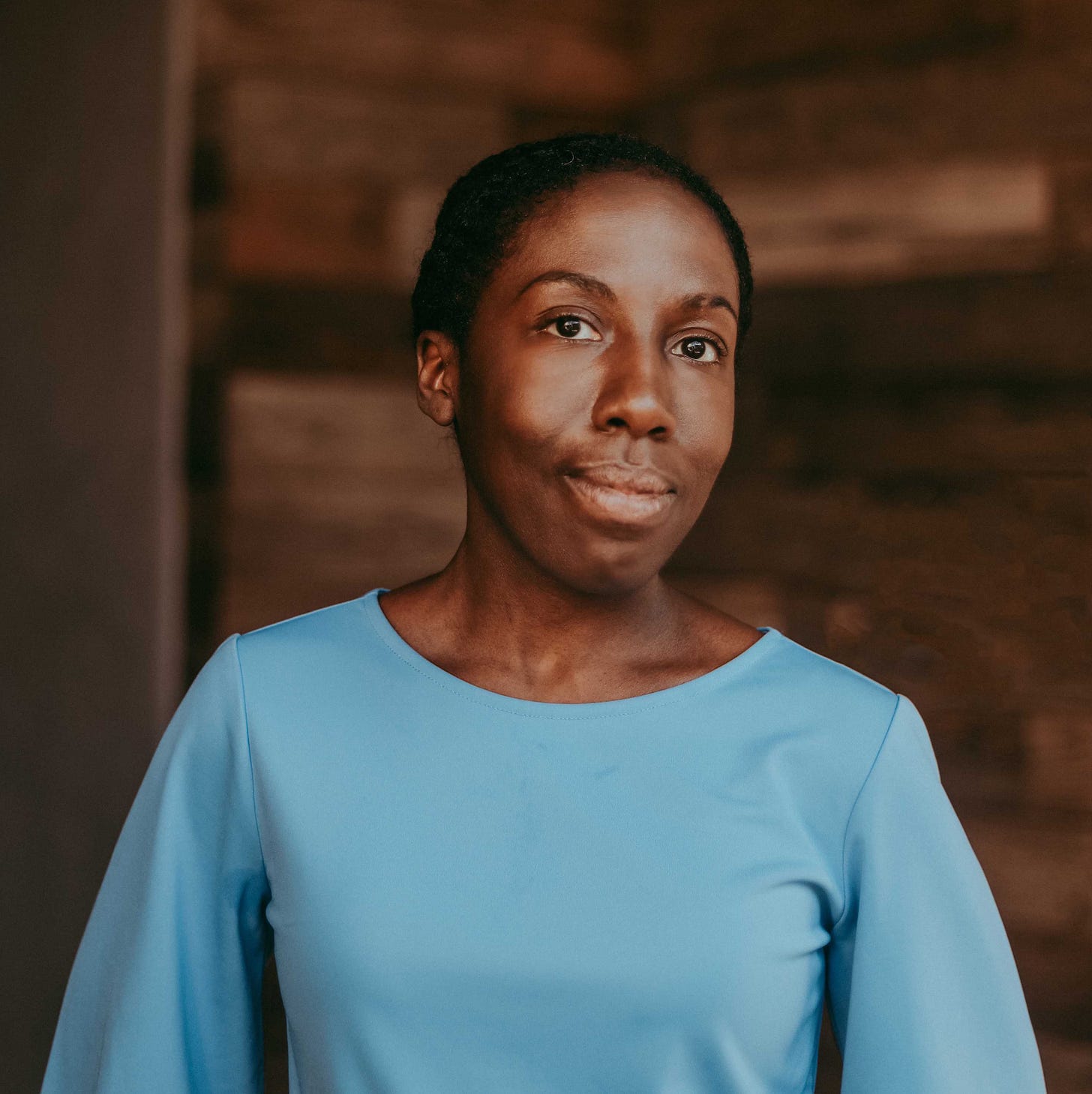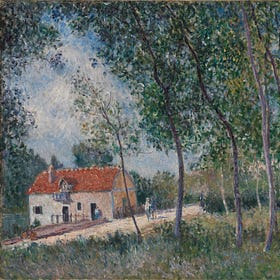
I first discovered Jennifer through her Minorities in Publishing podcast, which shines a light on underrepresented professionals in the book publishing world. Its episodes generously offer everything from real-world context on issues like representation to a behind-the-scenes look at the publishing industry to a deep dive into the personal histories of guests.
The podcast recently celebrated its 10th anniversary and is already charging ahead through its 11th year — a feat of longevity that, under her leadership, simultaneously comes as no surprise to long-time listeners and marks a significant accomplishment in today’s increasingly ephemeral media landscape. I’ll continue to be among the many who are celebrating this major milestone as we eagerly look ahead to its future from here.
Jana M. Perkins
Founder, Women of Letters
Jennifer Baker is an author, editor, writing instructor, and creator of the Minorities in Publishing podcast. She’s been a recipient of NYSCA/NYFA and Queens Council on the Arts grants, a 2024 Axinn Writing Award, and was named the Publishers Weekly Star Watch SuperStar in 2019. She is the author of Forgive Me Not (2023), a 2023 Los Angeles Times Book Prize finalist, an NYPL 2023 Best Book for Teens, and 2023 Best of the Best by the BCALA, and the editor of Everyday People: The Color of Life — A Short Story Anthology (2018). Her website is JenniferNBaker.com.
Did you have any mentors along the way?
Jennifer Baker: Short answer is: absolutely! Longer answer is that everyone is a mentor in some way.
I’d be hard pressed to announce someone as ‘my mentor’ because I don’t know that I could give only one or even a handful of people that designation. Even the negative experiences have had a deep impact on me and provided space for learning lessons and growth. (This includes some of my worst bosses or my ex-husband—whom I never write about.) I’m framing it in this way, a little verbosely, not to remove the special place mentors can and do provide, but to recognize I’ve been mentored by those who may not even realize it.
For instance, Tayari Jones has supported my work as a facilitator in workshops when I was in my twenties and early thirties—her heartfelt support of my early writing really buoyed me to keep going. Dear friends in the writing community like Renée Watson or Ibi Zoboi have provided so much great advice on how to navigate the industry. Legends like Jacqueline Woodson and Rita Williams-Garcia paved the way by showing their work and focus is to produce the best work possible that speaks a deep truth and reaches Black communities across the globe. Or some of my best bosses, who made sure I had everything I needed to do my job and thensome, and provided me the tools to grow while also showing there’s always more to learn.
Maybe it sounds a little woo woo, but it’s true to the highest degree that I’m continually lifted up by the love, time, words, visuals, information, actions, deep discussions, etc. that others have gifted in such profound ways.
Tell us about some of the projects, ideas, or questions you’re currently working on.
JB: I tend not to get into specifics about what I work on until it’s complete and out in the world in some fashion. The most I’ll say is I’m working on 3 novels, one under contract, and a short story collection.
I’m a multitasker when it comes to writing, so I rarely focus on only one book at a time. I’ve taken a pause on nonfiction outside of a monthly contribution to my blog.
What do you wish you’d started doing sooner?
JB: Coding! (And, yes, I know I can still learn to code, but who has the time to do one more thing.) When I was in undergrad and lucky enough to get a full scholarship, and coding classes were available. (This was the early aughts.) I wish I had taken those as well as kept looking into coding as a pastime. I coded a little with Dreamweaver, but it never stuck because I didn’t keep practicing.
After a few years (and tries), I pretty much put myself all in for book publishing and creative writing. Keep in mind that’s not a regret. Mainly, I have often wondered how different my full-time career would look if I had kept up coding and learned more tech while writing on the side. You know, to keep my personal and professional life even more separate.
What book have you most often gifted to others?
JB: I have many friends with kids and I know many people who write (or illustrate picture books). So this makes gift-giving especially easy!
Most recently it’s been the picture book BIG by Vashti Harrison and An Asian American A-Z: A Children’s Guide to Our History by Cathy Linh Che and Kyle Lucia Wu, illustrated by Kavita Ramchandran. In terms of a book I’ve continually recommended, the most recent has been Lone Women by Victor LaValle because his ability to craft such lush, descriptive, and tense chapters in such a short span of time is something to be studied. So I regularly have suggested this when I do one-off teaching on craft.
Outside of your work, what’s something you feel you’ve thought about more deeply than most other people?
JB: My sugar intake as of late. (Kidding but not.)
I don’t necessarily believe I’ve thought about this more deeply than others, but something that continually comes to mind—because I’ve also had to reckon with and enforce it more—is boundaries. Anyone in therapy can speak to this! (I am grateful to have a therapist, by the way.) I’ve been very firm about establishing boundaries the past 6-7 years because of the increase of ‘asks.’
I do not mind an ask or inquiry, lord knows I make many myself every day in some form or fashion. It’s mostly when, as a Black woman, I can see there’s a level of entitlement coming from the asker. And that strikes a very particular chord. If I’m doing all the things for others, responding to all the emails of rudimentary or broad requests, when do I have time for my work, my rest, my creative practice, my hobbies, my community? So setting boundaries is personal, professional, and practical.
“I do not mind an ask or inquiry, lord knows I make many myself every day in some form or fashion. It’s mostly when, as a Black woman, I can see there’s a level of entitlement coming from the asker. And that strikes a very particular chord.”
I set out-of-office (OOO) responses to let people know I’ll get back to them later. Later can be a few days or a few weeks. I encourage reminders if I haven’t responded after engagement. I also do not respond to inquiries that do not note payment (or lack thereof) upfront. If people don’t read my OOO where I may provide clear parameters for my responses and to what, then I do not feel a need to respond after that. If someone asks me for something by a specific date, I let them know if I can or cannot make it upfront, if not well before the deadline, out of respect for both our time. It’s been really crucial to set boundaries and be a thorough communicator of what my expectations are and how limited my time may be (or stretched I am).
What’s a commonly shared piece of advice that you disagree with, and why?
JB: I think there’s more I’d push back on in terms of perception than advice. Especially in the sense of creation.
I often, or at least too frequently for my taste, hear, “I failed to…”. And I’m always curious where this idea of “failure” comes from. Various people online, pick your social media mode, have said, “I failed to get a book deal.” And I’m sitting here thinking, “Did you? Or did you just not get a book deal? Because that’s not a singular occurrence.” Failure exists. There’s a lot we’re failing to do now as a nation, let alone a world. But in terms of trying and not getting, in terms of rejection? That’s not failure.
A publisher I worked with said, in an editorial meeting, that she’d like us (editors) to reframe how we thought about “losing a book” (e.g., when you pursue a book and make an offer as an acquisitions editor at a publishing house and you don’t get it). Because the fact is the book isn’t “ours” and it was never ours to “win.” So instead of “I lost this auction” or “I lost this book,” say “It didn’t work out this time.” And I prefer that acknowledgment to the idea of losing or failing. So that’s my pushback: “You didn’t fail if you tried,” and even if you didn’t try you didn’t fail. Other factors come into play in what we (choose to) do and don’t do.
What keeps you going?
JB: Kindness. Kindness that is genuine and natural, not forced. And when you’re on the receiving end it can really change the game. And if you can’t find it in yourself to be kind, or give grace, take a step back and a breath to be kind to yourself.
“I’m a multitasker when it comes to writing, so I rarely focus on only one book at a time.”
Is there a project, initiative, or cause you’d like to highlight?
JB: Freedom Reads, Bayard Rustin Center for Social Justice, Baldwin for the Arts, Haiti Cultural Exchange, Formerly Incarcerated College Graduate Network, Unicorn Authors Club, TransLash Media, Friends of the Congo, International Rescue Committee, Palestinian Children’s Relief Fund.
Where can our readers find you?
JB: I’m on social media more than I would like to be, but in general I invite folx to find me via my website: jennifernbaker.com and/or minoritiesinpublishing.com. I’m fairly accessible via either channel.
We corresponded with Jennifer over email. Our exchange has been edited for clarity.
To live many different lives: An interview with Ayşegül Savaş
“As a writer, everything I think about deeply somehow makes its way into my novels, short stories, and essays. In this way, writing has always seemed to me a very expansive career, which allows its practitioner to live many different lives.”
Of language, of poetry, of memory: An interview with Mary Jo Bang
“Of course, there were teachers—although early on, I didn’t always know how to make use of their support. My college teachers were encouraging and that was helpful, but even then, I don’t think I understood that they expected students to ask for their help.”
Thank you for being here — we’re delighted you’re a part of the Women of Letters community. If you are too, here are a few ways you can help keep it going:
❤️ Heart & leave a comment to help other folks find this post.
💌 Recommend our Substack with a testimonial and you might see it featured on the homepage.
💬 Share this conversation with someone who needs to see it.

























Share this post